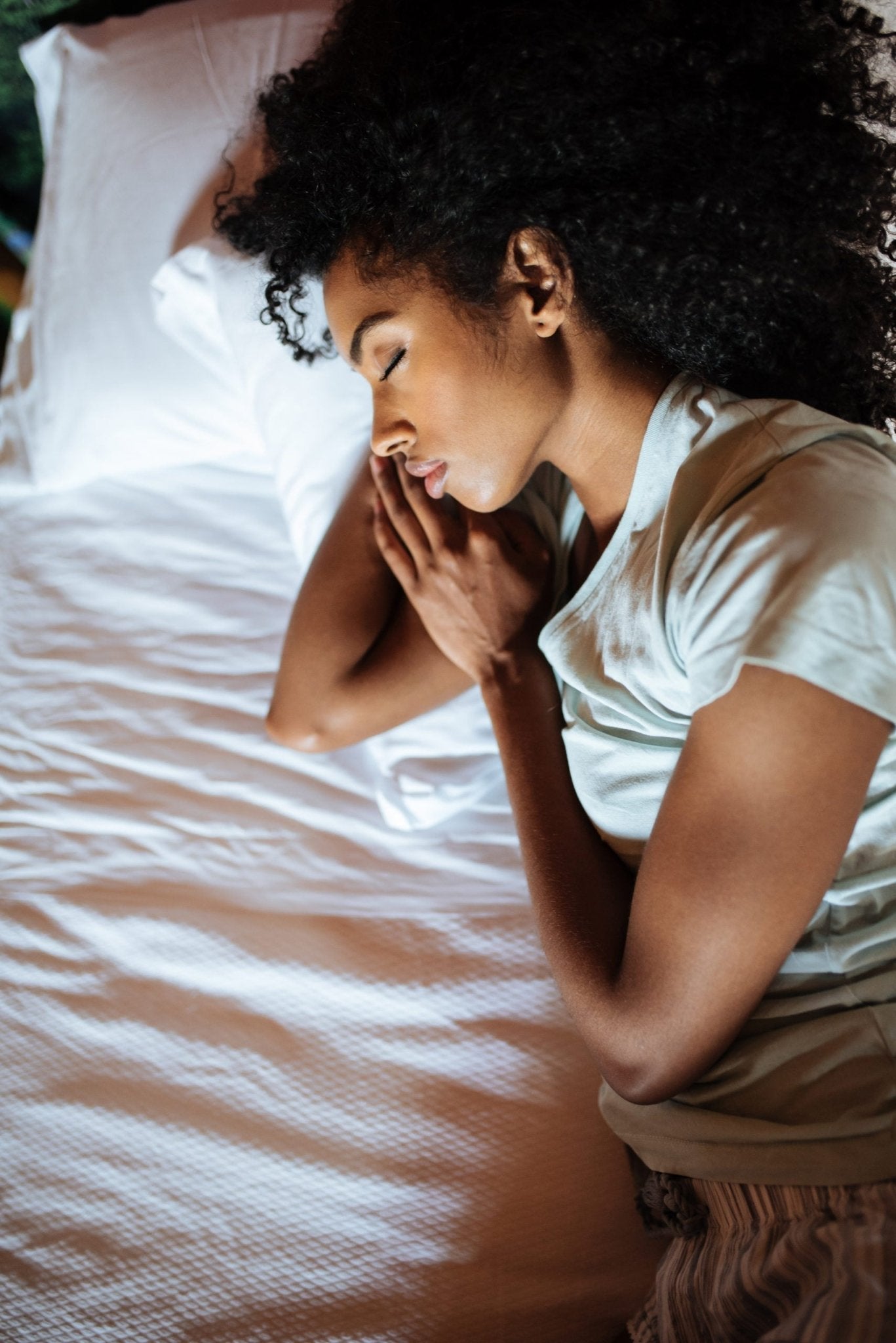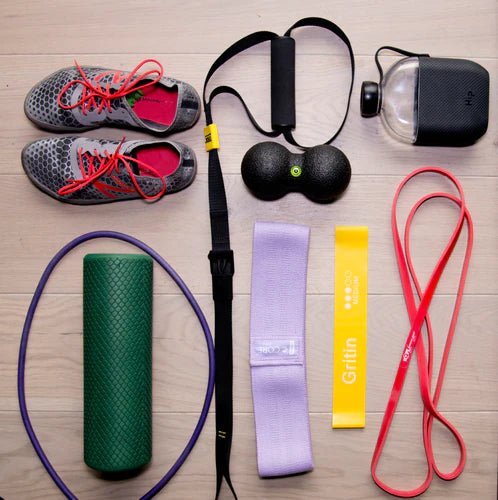Yogi, model, author, actress and cancer survivor Sara Quiriconi AKA @livefreewarrior has suffered from anxiety since her teens. She describes, in her own words, how she pulls herself out of a spiral of panic
“There’s no doubt, we’re all under a lot of stress at the moment. Challenging times can trigger even the most trained leaders and wellness experts, and anxiety inevitably stirs up a load of conflicting emotions in all of us. I’m no exception. The other day, I had an anxiety attack – in a ball, on my bed, huddled in a pile of pillows, drowning in my own tears. Instantly, the self critic chimed in, “And you’re the wellness leader, huh?” My immediate reply was to shut that inner critic up, which went along the lines of, “Yes! This is happening to me, and that’s OK. After all, I’m human too.
The truth is, I’ve struggled for years with anxiety. Since I was a teenager, I was prone to deal with stresses worse than most. In moments of great stress, or when I take on too many tasks, the familiarity of that panic comes on strong. I was anxious as a kid, and as teenage years crept in, it seemed to get worse in the peer environment.
Other empaths will agree that perhaps the world’s emotions always sit heavier on us than most. However, I have never accepted the idea that a mental disorder or issue has to be a life-long sentence. I believe that with awareness, education and will, anything is possible.
Fortunately, over the years, and through a lot of self-education, I now have better tools to cope and deal with those moments when anxiety builds to overflowing. Below is my toolkit for managing panic and next week (in Part 2) I’ll write about the daily maintenance I use to stay emotionally buoyant. These include Yoga, good nutrition, exercise and sleep, all of which I feel are required to prevent an attack coming back or having to live with underlying low level anxiety. Ever had the jitters having too much coffee? Then you know what I’m talking about.

HOW I MANAGE AN ANXIETY ATTACK
Time and experience have helped me to manage the symptoms of an anxiety attack. I am able to recognize what’s happening in the moment they occur. The feeling of my chest getting tighter, the lack of ability to breathe freely, and the flood of overwhelming thoughts all coming at once — they now feel quite familiar to me. I hope this can help those of you unfamiliar to the feelings.
The great news is that I am able to recognize these feelings and give them a name, such as ‘There’s panic.’ Once I can name it, I can slightly detach myself from it, then use the tools below that I’ve developed with time to help calm the panic.
Take the focus out of the fear
There’s a saying that goes, “Where your focus goes, your energy flows.” Wherever you focus your mind, your body will follow, which can be the upside and downside of the power of the mind.
Just Breathe
If you focus on the fear of the attack, it will only increase it. Instead, it’s important to focus on something else such as your breathing – inhale and exhale slowly, and continuously and focus on the breathe coming in and going out. Say ‘breathe in’ and ‘breathe out’ slowly in your mind as you do so, or even say it out loud if you need to. Focusing on the breath, you’re able to see instantly what you can control, rather than what you can’t.
Focus around you
The mind is where the attack is happening, and the body’s reaction is the by-product of the thoughts. Look for inanimate objects around you, and say them out loud. For example, if you’re in the living room, see your sofa and literally say out loud or in your mind, “sofa.” Then, move on to the next object you find. And so on. This is taking you out of your head into the real world.
You’re now putting the mind to work on things it can focus on in reality that truly do exist. Giving the objects a name helps to create an image and connection in your mind of past knowledge and present situations, rather than focusing internally to what’s happening to you. This in turn gives your body and mind time to calm too.
Journaling
Journaling helps me to see my fears out on paper and recognize the emotion, rather than stifle it. A common fear I experience is that I won’t be able to get out of the situation I am, or I feel stuck. That feeling of ‘no-way-out’ could be due to an overwhelming workload, emotional anger from a disagreement, or not being able to visualize or foresee an opportunity working out in the future.
All of these fears, when they build up to an anxiety attack, can leave me with a feeling of a giant rock or weight that’s compressing on my chest. It can result in a feeling that I cannot breathe, that I’m gasping for air, or that the thoughts keep pouring into to mind with no end in sight.
Journaling helps me to take those thoughts out of my mind, so that I can see an end, and begin to carve out a foreseeable path. Then, the fear doesn’t seem so scary after all.
Watch what you eat after your attack
Lowering the amount of caffeine I drink and eating plenty of greens helps to calm my body and my mind. In addition to what I’m consuming, certain Yoga poses help to soothe the anxiety as well.
My go-to poses are forward folds, reclining bound angle pose with my hands on my chest and breathing, and child’s pose. These all help to compress the heart, like a gentle massage while I breathe through the anxiety until it passes or subsides.
Don’t feel guilty about indulging in rest
Rest, and good sleep, is the basis and foundation for all of our personal wellbeing. When overload hits, sometimes the best thing I can do in the afternoon is close the laptop, and grab a book, or watch a funny show on Netflix.
When you’ve rested enough, move
Yoga and movement help to lower my stress levels and prove an inner, personal strength that empowers me. I always joke, when I’m feeling down, I always do abs at the gym to build a stronger core — physically, but more so, spiritually.
Don’t try to control it
Remember that feeling unsettled may seem out of your control, however, that’s an emotion and a feeling.Situations don’t control us, our reactions and emotions attached to them do. So, let them go, focus on what you can and be free from what you cannot. Admit that thought to yourself and you’re one step closer to feel settled in the here and now.
On a personal note, thank you to 35 Thousand for offering the space to share this personal, intimate experience and touch on these deeper emotions. If you, personally, struggle with anxiety, you’re not alone and there are tools that can really help. If you know of someone who is struggling, perhaps this article was insightful to you to understand what s/he is going through. Please do share with someone who could benefit from reading this. Together, we’re stronger, and empathy is a strength, never a weakness.“
Look out for Part 2 next week – How Sara maintains daily emotional wellbeing and prevents anxiety
Read about how Sara manages emotions with different yoga poses here
Notes on mental health
Please note that these tips are not meant to be a replacement for speaking with a licensed therapist and/or a psychiatrist. Please do not be afraid to seek help if you feel that you or someone else is struggling and could benefit from it. Contact your local GP, family doctor or insurance company and/or your local government/ council to seek other government funded resources for mental health.
Confidential mental health helplines
US – SAMHSA (Substances Abuse and Mental Health Services Administration) Call 1-800-662-HELP (4357)
UK – MIND – Call 0300 123 3393 or text SHOUT to 85258 which is a crisis textile for support in a crisis www.giveusashout.org/get-help/



